April, 2024 – Earlier this month, members from IIRR’s U.S. headquarters participated in a three-day working visit to several of the organization’s projects in Ethiopia. The visiting team included IIRR President Peter Williams, IIRR trustee Ambassador Dane Smith, his wife Judy Smith, and IIRR Global Operations Manager Dr. Natalie Worley. The group arrived at IIRR’s Ethiopia country office in Addis Ababa on April 4, 2024, where they met with local IIRR staff. During the meeting, IIRR Ethiopia Country Director Zerihun Lemma briefed the visiting team on the various projects being implemented across the country.
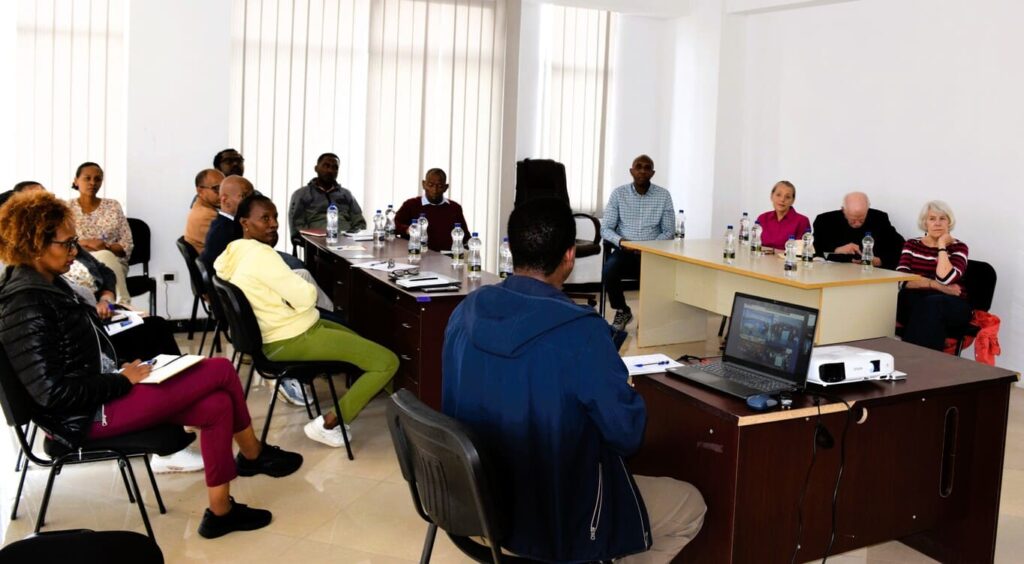
The visiting team meets IIRR Country Office staff
The visiting team, along with IIRR Ethiopia Country Director and members of his team, then left for Jinka Office in Southern Ethiopia and were warmly welcomed by the IIRR Jinka Office staff on arrival at Baco Jinka Airport. At the Jinka Office, the visiting team was briefed on the MaYEA (Mass Youth Employment in Apiculture) program and BIOM (Biodiversity and Community Resilience in the Omo Valley) projects that are being implemented in three zones of the Southern Ethiopia Region.
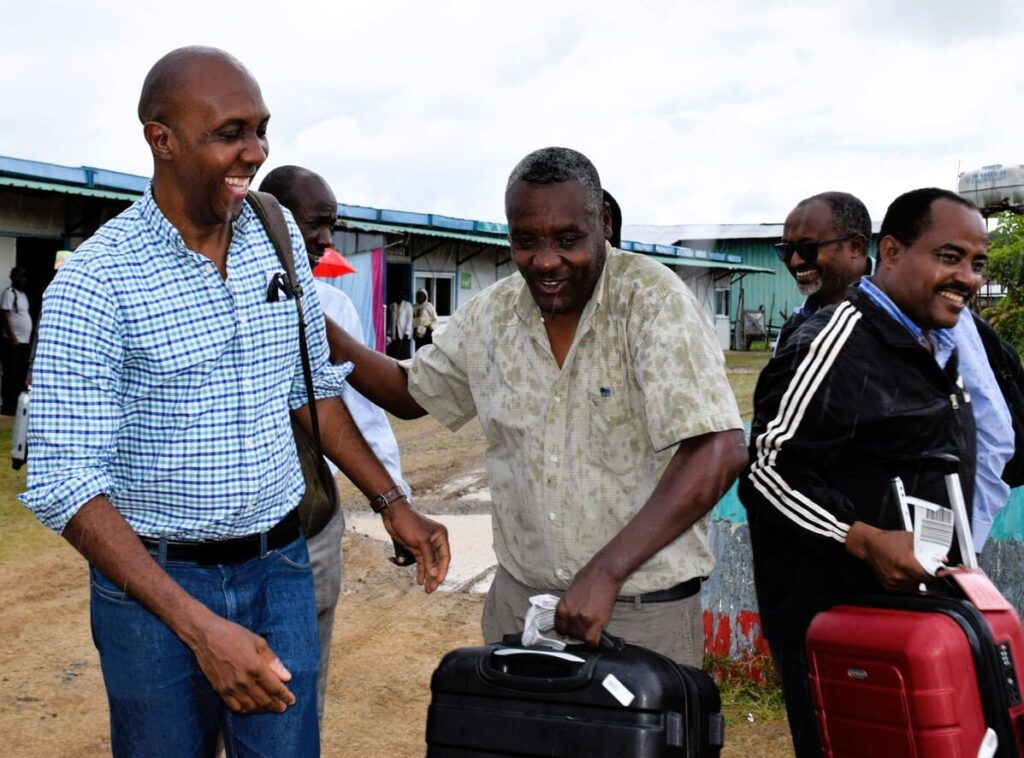
The guests were warmly welcomed at Jinka Airport before attending a briefing at the local office.
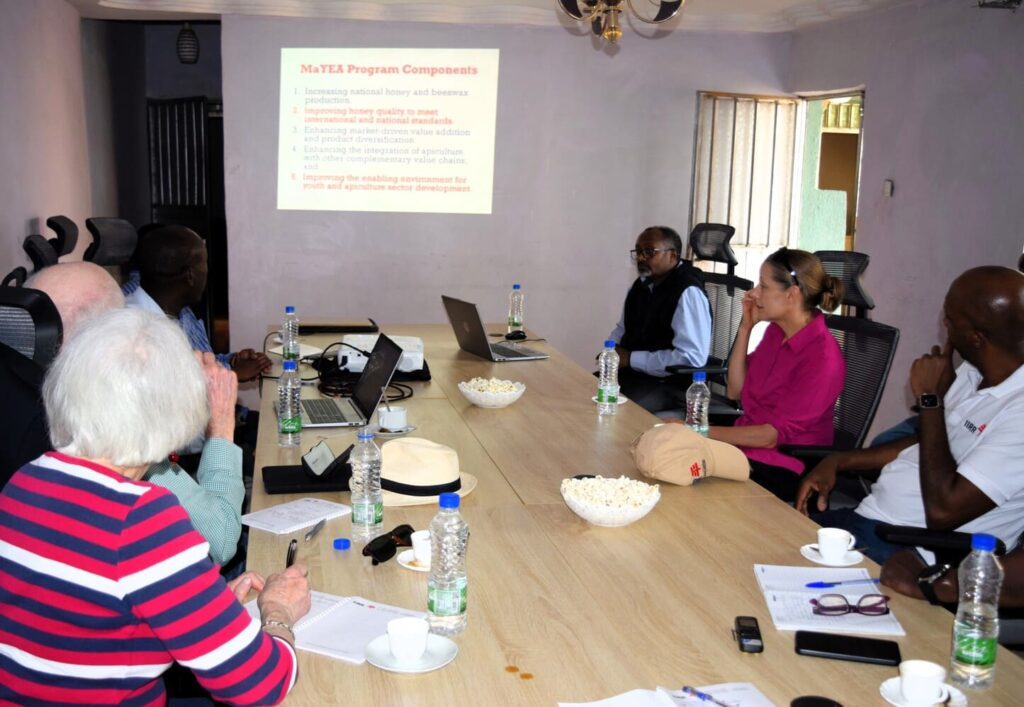
MaYEA is a five-year program being implemented in partnership with Mastercard Foundation. The program aims to disrupt the apiculture sector and allied value chains, tripling the current annual honey production in Ethiopia by 2028. To achieve this, the program aims to recruit 300,000 new beekeepers, increase the productivity of 350,000 existing young beekeepers, and engage an additional 350,000 young people in integrated value-chain activities in the sector. The program will promote wage employment opportunities for young people through the creation of 50 commercial apiculture farms.
BIOM is a five-year USAID-funded project being implemented in the Lower Omo Valley in Southern Ethiopia Region, particularly in Mursi, Bodi, Kuwegu, and Ari communities. BIOM will improve biodiversity, livelihoods, and human rights in the region through community-based conservation, ecotourism, livestock production, and peace-building activities.
The team then visited the South Omo Research Center (SORC) which hosts a large collection of ethnographic objects from 16 ethnic groups living in the South Omo Zone.
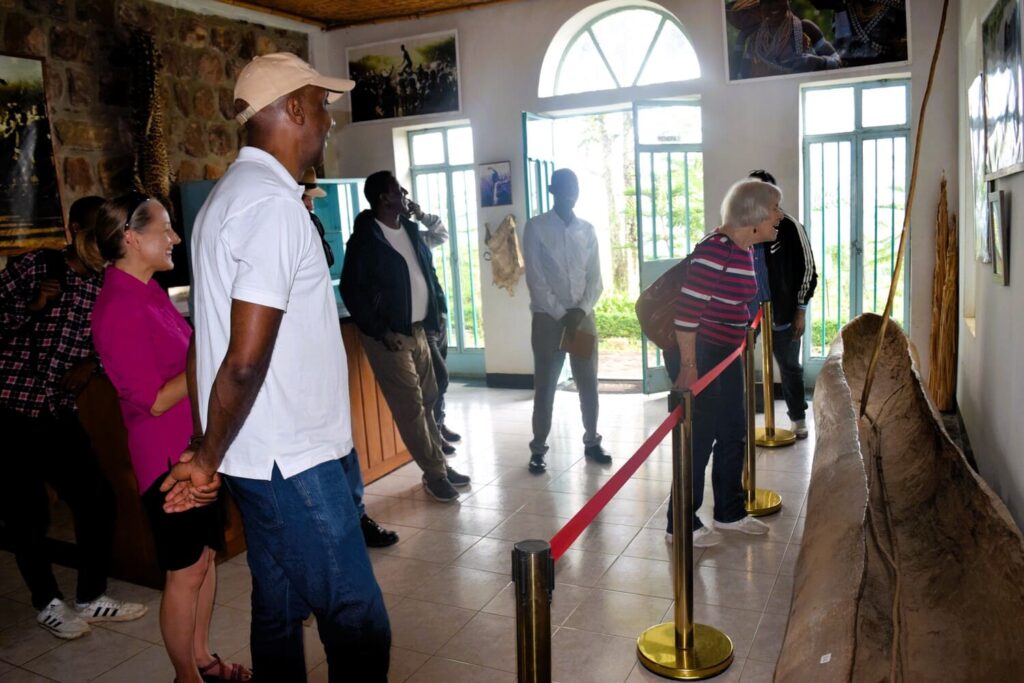
The team visiting the research center.
On April 5, the global team traveled to Tama Community Conservation Area (TCCA), where they met and listened to members of the Mursi and Bodi communities who are participants of IIRR’s BIOM project. TCCA is a wildlife reserve area of 197,000 hectares where the community, in collaboration with IIRR and partners, has formulated a ten-year plan for the wildlife reserve area to be managed by the communities living there. The plan has been approved by the government.
Partners in the implementation and monitoring of the BIOM project include Cool Ground, Ethiopian Institute of Peace (EIP), Omo Turkana Research Network (OTuRN)-a network of Durham University, King’s College London, University of Leeds, and Arba Minch University.
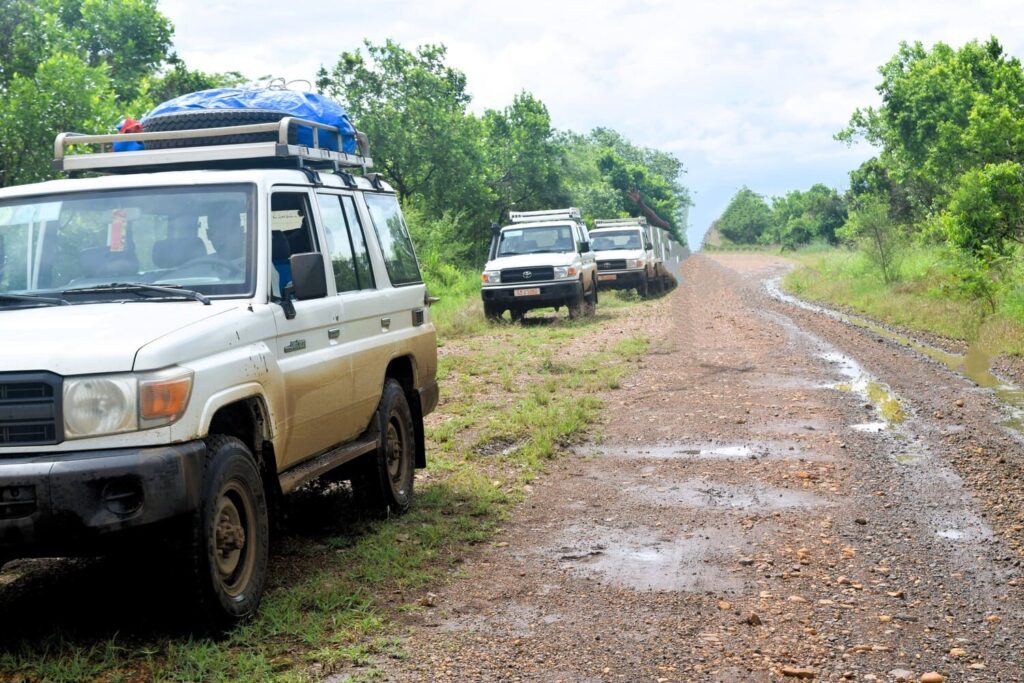
The team travels through the TMCC.
Upon arrival at Romaos Village in Salamago Woreda (district), South Omo Zone of South Ethiopia Region, Chief of the Mursi ethnic group Bitongai Golegnmeri welcomed the team and said he had to travel on foot for two days to meet the visiting team. The chief implored IIRR to address the issue of Tsetse flies that are killing their cattle and wild animals such as buffalos and zebras living in the Tama conservation area. The chief and other members of the Mursi vowed to preserve the natural environment and protect wild animals from being killed by Mursi people as well as tribes living in the neighboring areas.
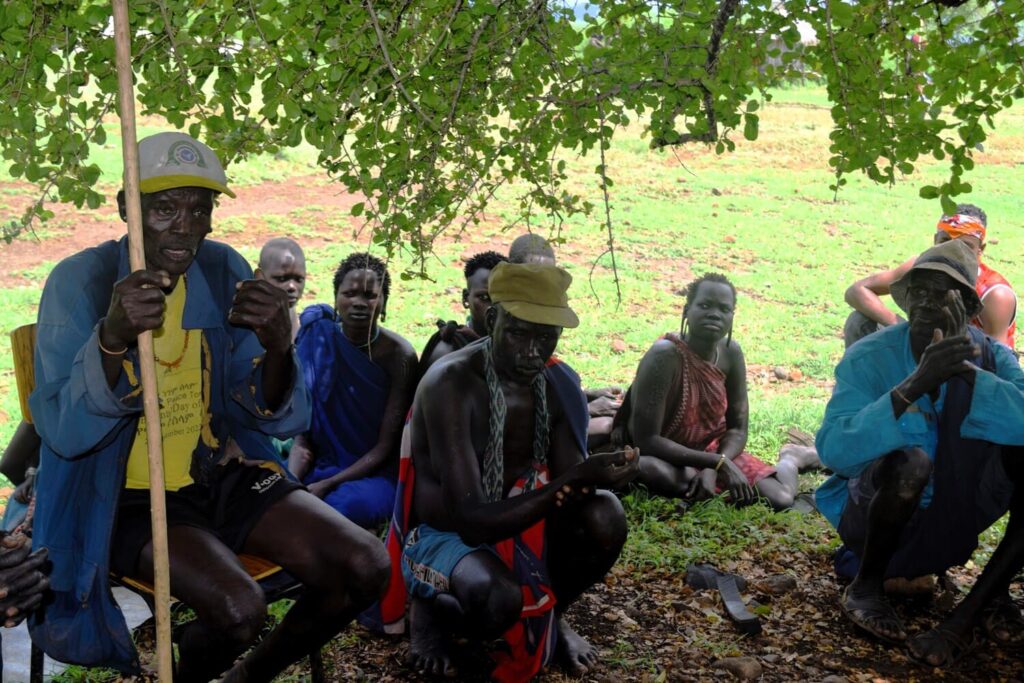
Olidor Bidameri, an advisor to the chief, thanked the IIRR team for coming from afar to meet with them and listen to their concerns about other issues facing their community. He also thanked IIRR for starting the Functional Adult Literacy program which he said has started to bear fruit. He then mentioned some of the problems the community has been facing including malaria, lack of clean drinking water, and difficulty in maintaining health facilities.
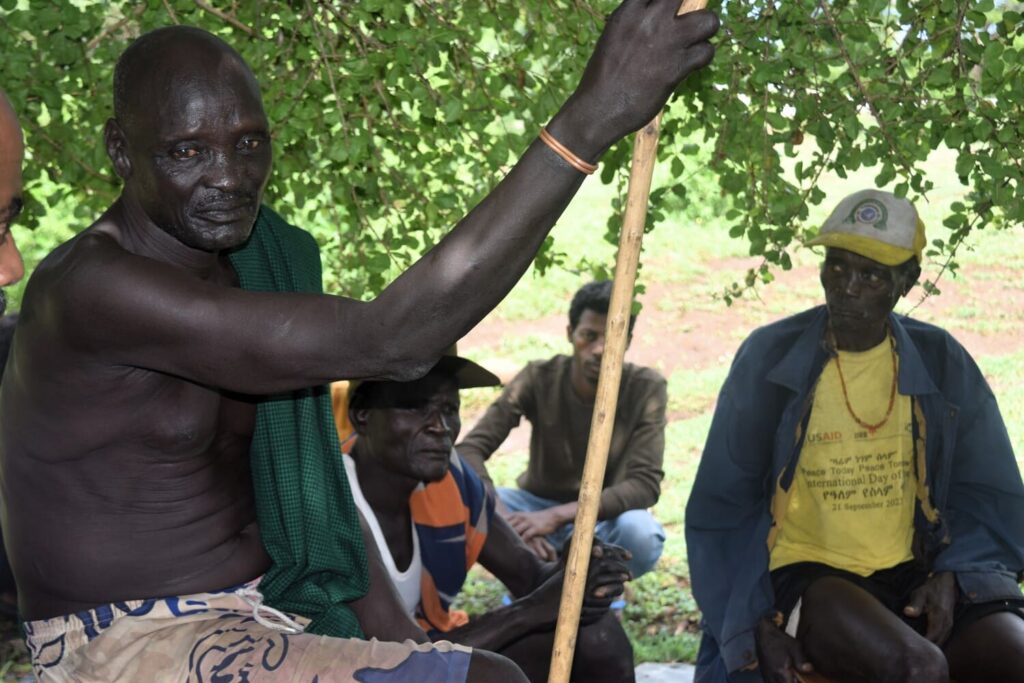
Olidor says the Functional Adult Literacy program is bearing fruit.
IIRR Ethiopia Country Director expressed his organization’s commitment to work in close collaboration with the community to address some of the problems of the community. Mr. Lemma took the opportunity to inform the gathered community members of the planned implementation of the MaYEA program in the area, which will bring additional opportunities for income and value chain development through apiculture and livestock.
IIRR global president Peter Williams thanked the chief, his advisor and community members, and pledged to support the communities in their endeavors to work alongside them to support solutions to some of the problems they have been facing. He said he looked forward to seeing them again in the future and hoped that they would continue making positive progress in their community capacity-building activities.
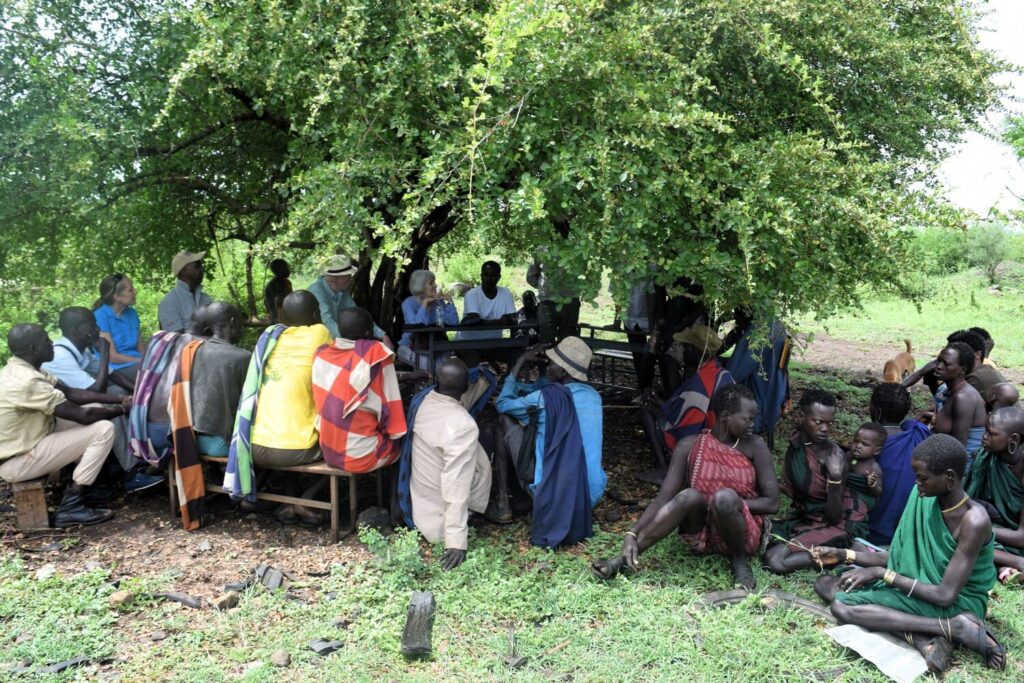
Team members having a meeting with members of the Mursi community.
In honor of the visiting team, the Mursi community demonstrated the Donga ceremony, which is a stick fighting ceremony among Mursi young men who compete to test their skills, agility and strength to attract girls’ attention.
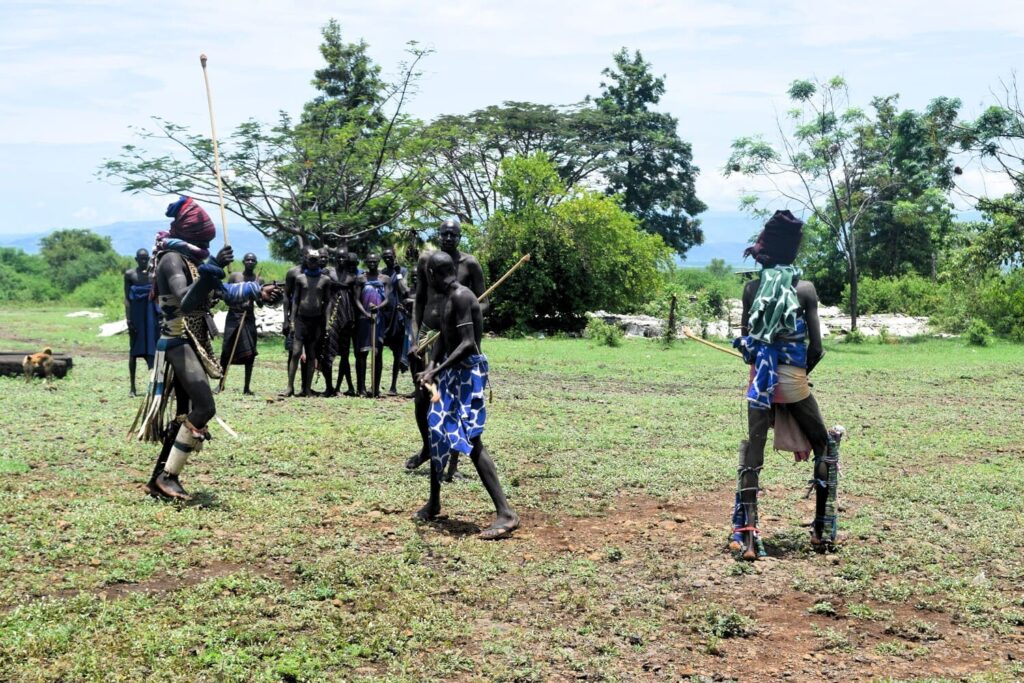
Young members of the Mursi community show Donga to the team.
The visiting team then traveled to Gio Marsiyo village, where they were received by the Bodi community living there. The meeting with male and female members of the community took place at IIRR supported Adult Literacy Center.
Kambay Yersela, Chief of the Bodi community in the village, expressed his gratitude to IIRR for providing the Functional Adult Literacy (FAL) program in their village even though members of his community are facing many other problems such as human and animal diseases.
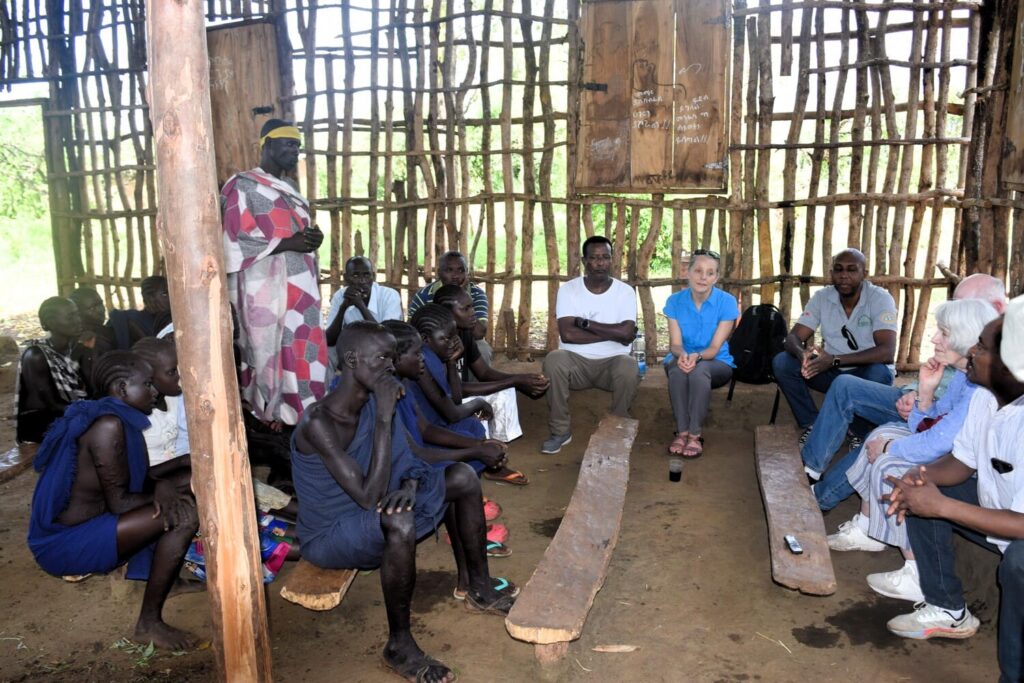
Though their tradition does not encourage them to take a vocal role in leadership, several Bodi women and girls addressed the visiting team and mentioned the need for school feeding, as lack of food in the area is forcing them to discontinue their education. They also mentioned the absence of a grinding mill in the area as a major problem and asked for IIRR’s support to address this issue to allow for more efficient processing of materials.
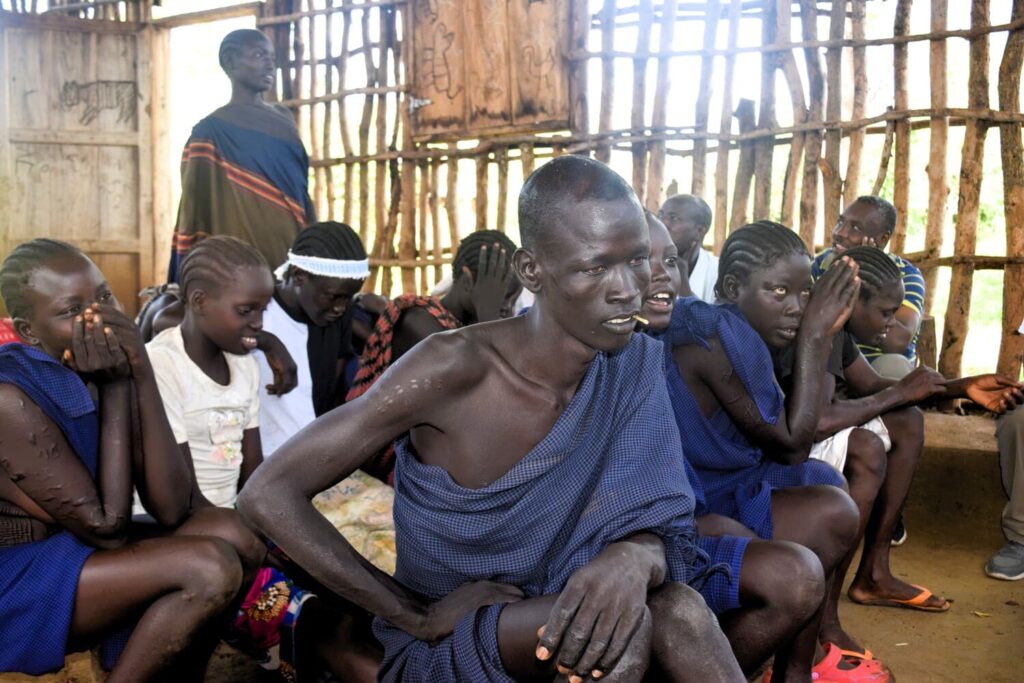
Bodi women talk about their challenges and hopes.
Mr. Lemma voiced appreciation to the Bodi community for their achievements to date in FAL, in maintaining peace in the community, and for protecting wildlife in the conservation area by establishing the Community Conservation Council. He also informed participants about the upcoming implementation of the MaYEA project in the area and encouraged the young people to support each other in their participation to elevate the entire community through the new opportunities the project will provide.
The team concluded the visit on April 5, 2024, after visiting Gamo-Gofa cluster and the IIRR Office in Arbaminch to hold a brief discussion with the new IIRR MaYEA cluster coordinator.
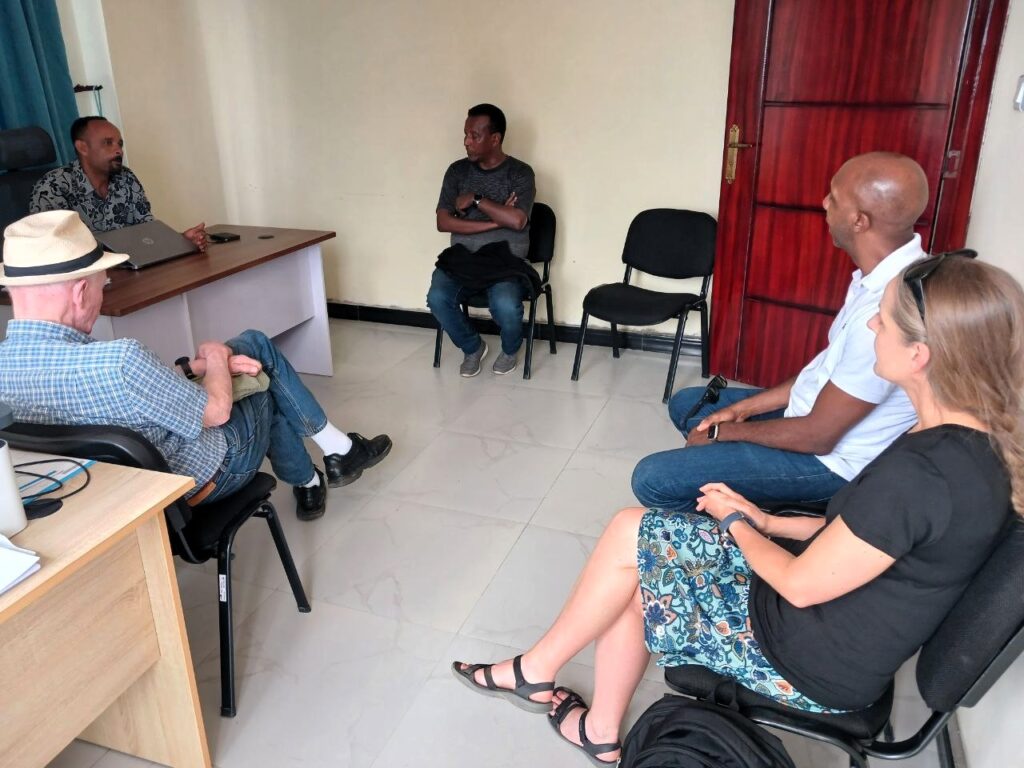
The team makes a brief visit to the Arbamich IIRR office.



